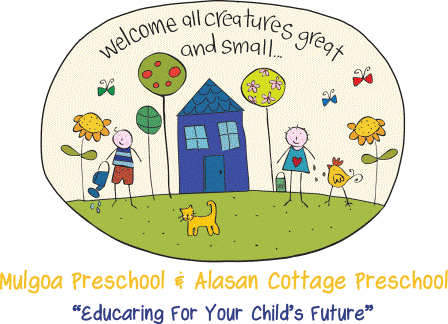
All 4 Kids Kindergarten PTY LTD

"All 4 Kids Time"
INTEGRATED SKILLS

Social-Emotional development refers to a child’s ability to identify feelings, self-regulate and build relationships.
High-quality relationships correlate to positive outcomes for young children (Shonkoff, 2004). Brain research verifies that emotional and cognitive development are interrelated (Bell & Wolf, 2004). Young children who have strong social and emotional development are more likely to have good academic performance in future schooling (Cohen, 2005). Therefore, All 4 Kids Time integrates a social-emotional component into each lesson plan.


Creative Development is the ability to respond to experiences by expressing ideas and imagination through music, dance, dramatic play, and art.
Children who score higher on tests of imagination and creativity develop stronger problem-solving strategies (Brown, Sutterfy & Thronton, 2008). All 4 Kids Time is an arts-infused curriculum that allows children to take creative risks, make connections, and explore their curiosity in meaningful ways. “Play is a safe place where children are exploring the expression of emotion with no attending consequences” (Gaskins and Miller, 2009).
Language and literacy skills refer to a child’s ability to communicate and connect with others through listening, speaking, reading and writing.
Learning language is a social experience and requires symbolic processing. The relationship between thought and word is “not a thing, but a process, a continual movement back and forth from thought to word and from word to thought” (Vygotsky, 1962, p. 125). All 4 Kids Time is a literacy-rich curriculum and invites children to ask questions and explore ideas through discussion and dramatic play. Moreover, we encourage children to construct autobiographical narratives in the form of storytelling, journaling and drawing. Language skills are some of the best predictors of academic success (Snowling, Hulme, Bailey, Strothard & Lindsay, 2011).


Physical development refers to a child’s gross and fine motor skills. To increase strength, muscle control, and coordination, the child requires adequate nutrition and fitness levels.
Physical development in children follows a directional pattern (Bayley, 1993). Large muscles develop before small muscles. Mother Goose Time curriculum actively engages a child’s mind and body through multidisciplinary activities that invite children to touch, climb, crawl, and manipulate objects in their surrounding environment.
Mathematics and reasoning skills include a child’s ability to count, understand number sense, manipulate objects, create patterns, sort, compare and measure.
Research on children’s learning in the first six years of life validates the importance of early experiences in mathematics for lasting positive outcomes (Bowman, Donovan & Burns, 2001). Through All 4 Kids Time curriculum, children develop the ability to reason mathematically and become increasingly sophisticated in the ability to recognize and analyze the mathematics inherent in the world around them (Baroody, Bajwa & Eiland, 2009). Children’s early mathematical experiences play a significant role in the development of their understanding of mathematics and serve as a foundation for their cognitive development (Tudge & Doucet, 2004).


Science skills include a child’s ability to inquire, predict and evaluate observations. It supports a child’s ability to explore everyday life, physical properties of matter, and to make sense of concepts such as weather, natural habitats, and technology.
Similar to learning to count or read, learning how to “do” science is a process. Metacognitive skills develop as children describe what they see, ask questions about it, repeat the experience, and then think about how it connects to what they know about their surrounding environment (Ashbrook, 2003). All 4 Kids Time includes science-based projects and processes throughout the curriculum because science discovery serves as an ideal conduit for supporting children’s learning across different domains (French, 2004).
Social Studies skills refer to a child’s ability to understand oneself in relation to the world. It includes the exploration of roles, responsibilities and cultural traditions.
Children live within many different communities: family, school, church, city, nation, etc. Within each community are different social norms and traditions. Understanding social systems sets the stage for a child’s lifelong dispositions about people, cultures and how he or she belongs in these systems (NCSS, 1988).
All 4 Kids Time embraces the research that it is critical to invite children to explore diverse communities, which enables them to integrate commonalities between them and increase respect for differences (Morrison, 2008).
